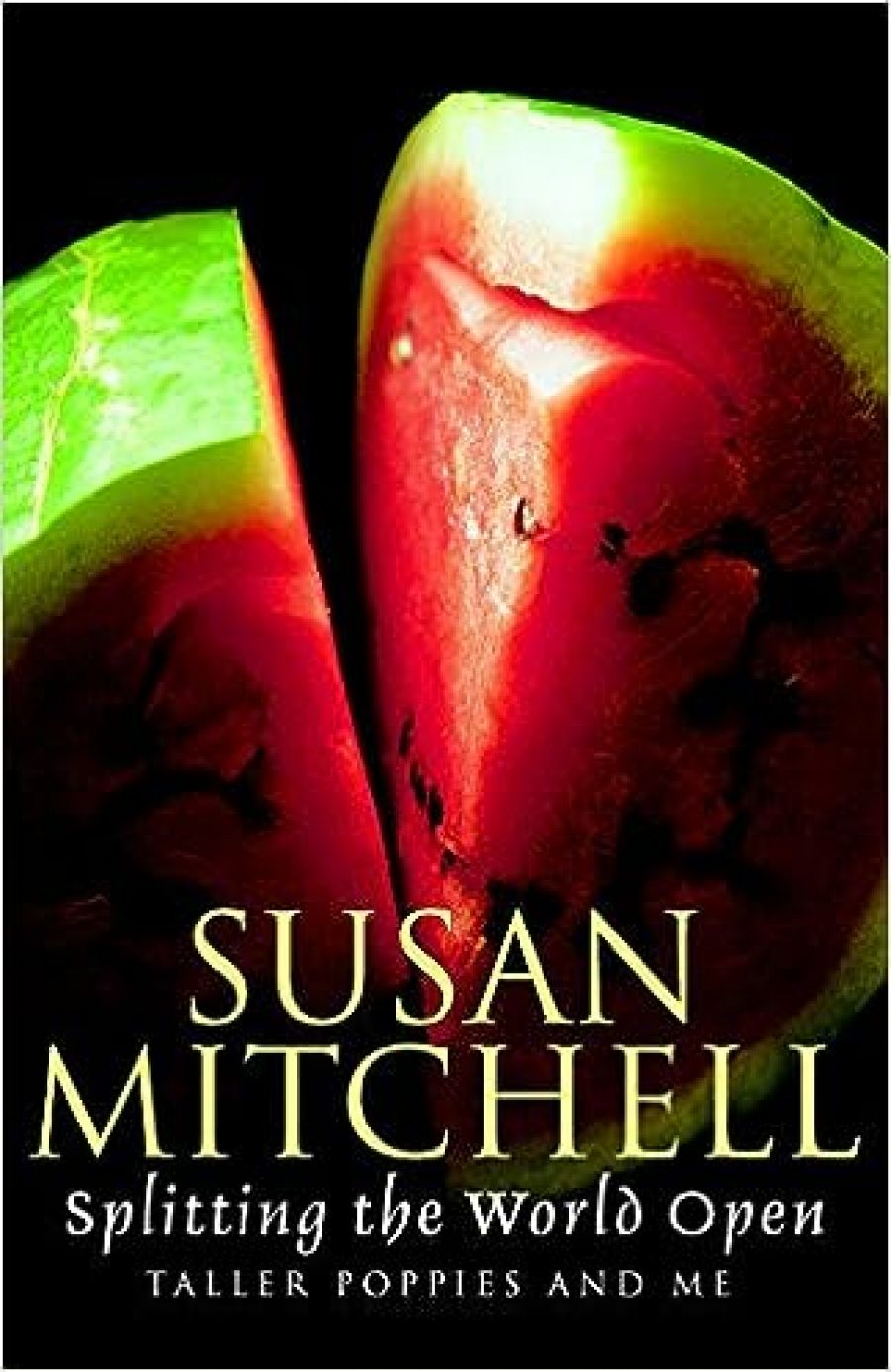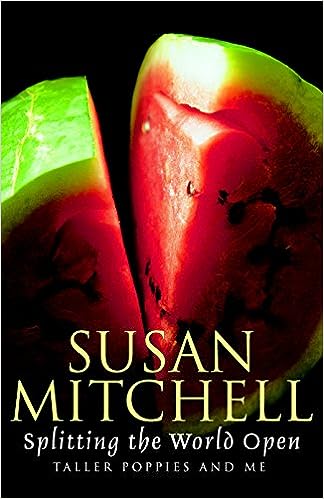
- Free Article: No
- Contents Category: Gender
- Review Article: Yes
- Article Title: Poppies and Outsiders
- Online Only: No
- Custom Highlight Text:
Susan Mitchell’s Tall Poppies first shared their stories with her in 1984. Seventeen years later, her subjects have grown even taller. Between them, Anne Summers, Eve Mahlab, Sallyanne Atkinson, Fabian Dattner, Maggie Tabberer, Pat O’Shane, and Robyn Archer head corporations, shape legislation, run million-dollar organisations and commandeer swathes of print space in the national dailies. And yet, according to Mitchell, younger women are hardly aware of their existence. ‘Who knows the real stories of these Warrior women and their lives?’ she asks. ‘Certainly not the young women in the country who have benefited from their struggles and their passion. Every woman who gets a bank loan or a credit card, who isn’t sacked when she becomes pregnant or who wants to be an engineer or a plumber or prime minister is indebted to them.’ Warming to her theme, Mitchell paints her younger sisters as being sadly devoid of a sense of either community or higher purpose. Reduced, apparently, by the greed-is-good 1980s into aspirationalist drones, thirty-something women are ‘always complaining about how tired they are ... And why do they work such long hours? So they can have a lifestyle like the ones in Cleo, Marie Claire and Vogue Living. All the right labels on their backs, the designer body, the designer home, the designer dinners, the designer partner.’
- Book 1 Title: Splitting the World Open
- Book 1 Subtitle: Taller Poppies and Me
- Book 1 Biblio: Allen & Unwin, $24.95 pb, 195 pp
- Book 1 Cover Small (400 x 600):

The generalisation is an unfortunate imposition on an otherwise revealing study. And it is so at odds with the sense of sisterhood that Mitchell promotes, so out of tune with her purported commitment to celebrating women’s lives, that it deserves a response. Baby Boomer feminists who haven’t had daughters seem curiously unaware of the fact that women my age have been too busy living our feminism to write about it. We are not depoliticised, we’re just undocumented. After a hard day’s labour in the unisex jungle, we’ll choose Generation-X satire over 1970s polemic every time. Bridget Jones-style Note to Self in response to Mitchell: try to remember the last time actually bought a copy of Marie Claire rather than flicking through it while waiting for biennial pap smear. Also, recall sense of admiration after reading Damned Whores and God’s Police (Summers) and The Female Eunuch (Greer) as zealous undergrad. Finally, compare it with frustration felt when scanning The Whole Woman (Greer) and Icons, Saints and Divas (Mitchell) a decade later, only to realise that Fearless Pioneers of Women’s Lib in dire need of makeover. To cope with the all-been-said-before factor, get v. drunk with singleton friends: Male/Female; Older/Younger; Left/Right. The binaries might have been adequate when the civil rights movement was in its infancy; in 2001, post-Boomer women (and men) are confronted with choices so diverse that we are scrabbling for a map.
To be fair to Mitchell and her subjects, the apparent political silence of younger women is more of a secondary concern than it is a recurring target. It was Anne Summers, after all, who threw down the gauntlet in 1995 to young feminists to write about their experiences. Kathy Bail, Virginia Trioli and others answered her challenge, and the personal-is-political phenomenon, that realisation that ‘if we were to tell the truth about our lives, then the connection between the public and the private had to be revealed’ (Mitchell), became briefly fashionable again. Then Sex in the City hit the screens, an entire generation of young something women ditched the F-word as a PR disaster, breathed a collective sigh of relief, and reached en masse for the remote. This is clearly not the primary readership Mitchell had in mind when she compiled Splitting the World Open. If it was, she might have contemplated setting the experiences of her seven Tall Poppies against those of seven shorter ones, across politics, business and the arts. Poppy King’s take on business contrasted with Eve Mahlab’s, for example; Natasha Stott Despoja’s political experience set against Sallyanne Atkinson’s; Rhoda Robert’s work in indigenous affairs compared with Pat O’Shane’s; and imagine what strange truths might surface if Julie McCrossin or Magda Zsubanski told their stories alongside Robyn Archer?
As it is, Mitchell’s text achieves its aim simply and effectively. Her subjects have all exhibited tremendous courage and determination in the course of their lives, and we are invited to share their discoveries. Their stories have been tailored into intimate and compelling monologues skirting across sex, relationships, career, politics, power, men and spirituality. Weaving her own anecdotes between the interviews, and lingering affectionately on details of décor and design, Mitchell has created a light and cosy read, a Thinking Woman’s tea party, in which the deeper issues are leavened with humour. We learn of Maggie Tabberer’s love of men and her self-professed ignorance of them: ‘Obviously I don’t know much about them. I’m not bloody good at choosing them.’ We learn of Eve Mahlab’s despair at being made Qantas Business Woman of the Year – ‘the beginning of a really bad few years’ – and how entrepreneur Fabian Dattner thinks that ‘the current leadership have got their vision up their bums. I look forward to the shift in leadership in which a new wave of leaders move in and care a bit more about the broader range of things other than money.’ Throughout, Mitchell uses her friends’ comments to evoke her own life as an only child, recreating the sweaty tedium of archaic family rituals as she chaperoned her parents towards old age, sans grandchildren or husband. Some of the revelations are particularly resonant: little Pat O’Shane’s dogged determination to be the best in her strict white school, Anne Summers’s immense pain when the sexual harassment scandal swept the press, Robyn Archer’s confession that she uses singing to combat her lifelong asthma.
On the public level, Splitting the World Open repeats a tale that is sadly far from over. Mitchell’s cast are all outsiders; they have succeeded in what remains a male-dominated world. And their conclusions about blokes and the impenetrable wall of Aussie mateship, which each of them has had to confront, are startlingly uniform. ‘Women have changed enormously but I don’t think basically men have changed,’ says Tabberer. ‘What concerns them is power, money, position and power.’ ‘Where’s the real power?’ asks Archer. ‘It’s still with the blokes. That’s the most heartbreaking aspect of the Women’s position. Carmen Lawrence, Bronwyn Bishop, Ros Kelly, Joan Kirner were all just done over by the male machine. It begs the question about who would want to be in politics anyway. Probably the best work has been done outside the political circle.’ Mitchell concurs: ‘in reality, all women are still outsiders. There may be those who think they have managed to penetrate the male world of power — some of those women who sit on corporate boards, for example. But many are only there as token women.’
But the last word should go to Summers. In articulating her concern about the future of women, she accurately pin-points childcare as one of the key issues affecting the well-being of the next crop of Poppies:
I’ve seen with alarm the ways in which things that I thought were the new certainties are able to be, if not reversed, certainly undermined or weakened. I’m thinking in particular of policies like childcare and certain things that made it easier for women that have been under assault from all sides of politics. I had thought that women, once out of the cages, could never be locked up again. More and more women you hear saying, oh, it’s all such a struggle and it’s stressful and do we want to be like men? I’m worried there’s going to be a major revisionism and that maybe the girls that are two or three today will grow up wanting to be happy housewives.
Perhaps Summers shouldn’t worry too much. As Fabian Dattner knows, every strong woman craves a wife: ‘you can only really have one person in the family who takes the public domain. Somebody has to hold the fort.’ The housewife might well be here to stay, but there is a difference. In the new millennium, her shoes will just as likely be filled by a man as by a woman. And for the growing numbers of careerists choosing not to marry at all, the household android is only a prototype away.


Comments powered by CComment